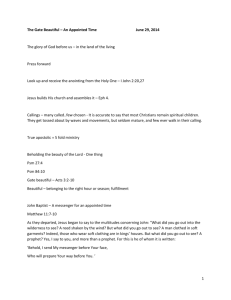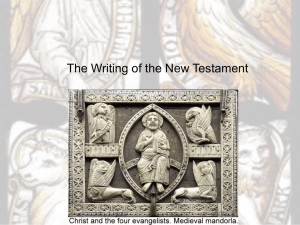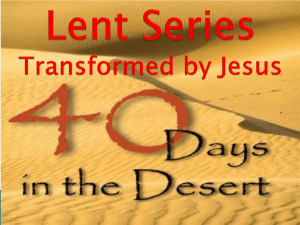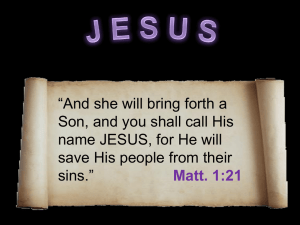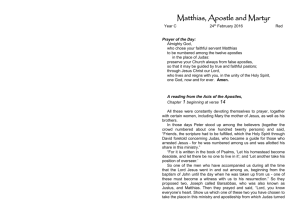John 8:31 - Gettysburg Church of Christ
advertisement
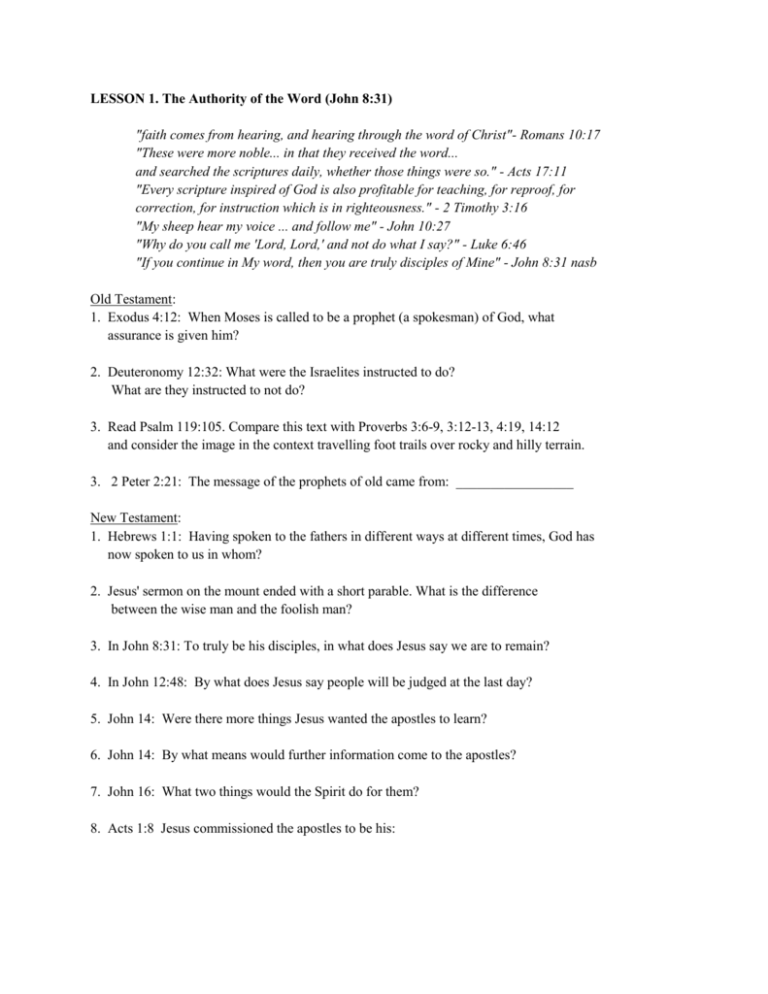
LESSON 1. The Authority of the Word (John 8:31) "faith comes from hearing, and hearing through the word of Christ"- Romans 10:17 "These were more noble... in that they received the word... and searched the scriptures daily, whether those things were so." - Acts 17:11 "Every scripture inspired of God is also profitable for teaching, for reproof, for correction, for instruction which is in righteousness." - 2 Timothy 3:16 "My sheep hear my voice ... and follow me" - John 10:27 "Why do you call me 'Lord, Lord,' and not do what I say?" - Luke 6:46 "If you continue in My word, then you are truly disciples of Mine" - John 8:31 nasb Old Testament: 1. Exodus 4:12: When Moses is called to be a prophet (a spokesman) of God, what assurance is given him? 2. Deuteronomy 12:32: What were the Israelites instructed to do? What are they instructed to not do? 3. Read Psalm 119:105. Compare this text with Proverbs 3:6-9, 3:12-13, 4:19, 14:12 and consider the image in the context travelling foot trails over rocky and hilly terrain. 3. 2 Peter 2:21: The message of the prophets of old came from: _________________ New Testament: 1. Hebrews 1:1: Having spoken to the fathers in different ways at different times, God has now spoken to us in whom? 2. Jesus' sermon on the mount ended with a short parable. What is the difference between the wise man and the foolish man? 3. In John 8:31: To truly be his disciples, in what does Jesus say we are to remain? 4. In John 12:48: By what does Jesus say people will be judged at the last day? 5. John 14: Were there more things Jesus wanted the apostles to learn? 6. John 14: By what means would further information come to the apostles? 7. John 16: What two things would the Spirit do for them? 8. Acts 1:8 Jesus commissioned the apostles to be his: 9. According to Ephesians 3:2-5: by what means was revelation given to the apostles? 10. By what means is it conveyed to us? Discussion: Consciously or subconsciously, it's not unusual to see people following sources other than the word. Read the texts below, and consider the lessons to be learned. a.) "IT'S TRADITION": In Mark 7, Pharisees came to Jesus, complaining that his disciples were not following the tradition of the elders. What is Jesus' response? b.) "AS LONG AS I DO WHAT I THINK IS RIGHT": While certainly preferable to "doing what I think is wrong," the problem is that my thinking is not the standard of right or wrong (cf. Prov. 14:12). Look at Acts 26:9. Before he became a witness of the risen Christ, what did Saul of Tarsus do, and why? The point, of course, is not that we should do what we think is wrong, but rather that we should submit our thinking to God's word. c.) "I WAS TOLD..." : Around 900 years before Christ, a disobedient king in Israel named Jeroboam established golden calves and called his people to worship them. A prophet from Judah was sent "by the Word of the Lord" to denounce this practice. For most of the chapter, the prophet honorably obeyed what he had been given, by the word of the Lord. But later in the text, a painful lesson is found, which serves as an example for us. The prophet meets an untimely death when someone misleads him and he stops obeying the Lord. What happened? Read the text. Note how many times he acted "by the Word of the Lord." Note when he switched from obeying the word of the Lord, to obeying someone else. (see 1Cor. 10:11). Summation: What are we to follow? 2 Timothy 3:16-4:4 For what were the Bereans commended? Acts 17:11 In what are we to remain? John 8:31 -




